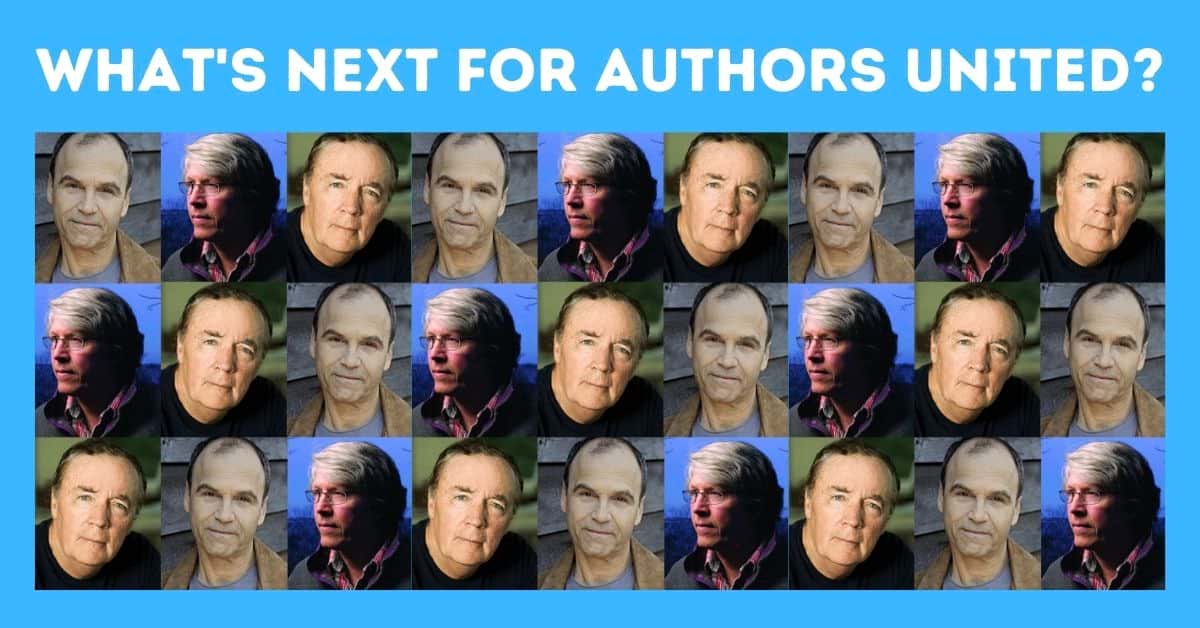Authors United has been spectacularly unsuccessful in its supposed mission to get Amazon and Hachette to agree a deal.
By contrast, Simon & Schuster was able to agree a deal in just three weeks – without the intervention of Douglas Preston’s group.
To be fair, Authors United has been very good at one thing: getting media attention.
Perhaps it’s time for Douglas Preston to widen the aims of the group and start campaigning on issues which actually matter.
It would be great if Authors United could get the media to focus on any of these problems. Alternatively, Authors United could continue to focus on propping up a broken system which only rewards those at the very top (like Douglas Preston, surprisingly).
1. Diversity in Publishing
Publishing is very white and very middle class. And, at the upper echelons, often very male too. One of the many knock on effects of this is that traditionally published books tend to be very white and very middle class. Publishing claims to want more diverse books from more diverse voices, but I don’t think that’s going to happen until more people from diverse backgrounds are representing authors and acquiring books.
2. One-sided Contracts
Contracts offered by publishers can contain awful clauses. Option clauses which unfairly tie authors’ hands. Reversion clauses which are meaningless in a POD/digital world where books never go out of print. And non-compete clauses which can pointlessly damage a writer’s career.
Some say that a good agent will negotiate those out. My experience of talking to fellow writers is that it’s often the case that even good agents can fail to negotiate these out because they don’t want to damage their relationship with the publisher. But, really, these clauses should form no part of any boilerplate. Agents shouldn’t have to negotiate them out because they shouldn’t be there in the first place. And the upsurge in digital-first imprints taking unagented submissions means this is a growing problem.
3. DRM
It doesn’t work at all in mitigating piracy, and only serves to antagonize legal, paying customers. And it ties publishers’ hands when it comes to things like bundling, selling direct, or letting authors give free copies to reviewers. Tor has been operating for over two years without DRM and has said it has seen no increase in piracy whatsoever. There is no good reason to keep DRM, and its retention is purely down to misplaced fears and publishers’ innate inertia.
4. E-book Royalty Rates
Authors like Douglas Preston, Scott Turow, and James Patterson don’t need to care about this issue because those at the top get huge advances which aren’t expected to earn out. In other words, royalty rates are largely irrelevant for them.
But these authors could perhaps start thinking of writers lower down the food chain, stuck on e-book royalty rates of 25%. Well, that’s 25% of net, which is 17.5% of list price. Actually, that’s 14.9% after the agent takes their cut. And all that’s assuming the publisher plays no games with the definition of “net.”
Publishers claim they can’t afford it because publishing is a low margin business. But $120bn worth of books are sold around the world every year, so I respectfully suggest that there is enough cash sloshing around to pay authors fairly. Perhaps if publishers didn’t engage in things like price-fixing – which will end up costing them hundreds of millions of dollars in legal fees, compliance procedures, settlements, and fines – there might be a little more left over to pay authors.
5. Actual Boycotts
Unlike the faux boycott claimed by Preston’s group, many authors out there are suffering from actual boycotts. Most booksellers won’t stock any books published by Amazon. Some won’t even stock self-published books that have been printed – not published – by CreateSpace, an Amazon subsidiary. And all self-publishers have been locked out of WH Smith’s e-bookstore in the UK for over a year, since Eroticagate.
6. Author Exploitation
The most unwelcome development in the last few years has been the huge increase in author exploitation. What’s particularly distasteful about this phenomenon is that the most predatory companies are not the fly-by-night operations of the past, but huge corporations exploiting writers on a massive scale. Oh and they are owned and operated by traditional publishers, happy to profit from this crap.
Penguin Random House bought Author Solutions two years ago and, instead of cleaning house, it has aggressively expanded its scammy operations. HarperCollins, Harlequin, Simon & Schuster, and Hay House are just some of the traditional publishers with exploitative vanity press operations being run on their behalf by Author Solutions. This is completely unacceptable. And instead of getting worked up about what Amazon might do in the future, I respectfully suggest that you should focus on what publishers are doing right now to authors.
Authors United – The Future
There’s an impression out there that Authors United is an out-of-touch, elitist, entitled group that doesn’t genuinely care for the plight of writers, and is reflexively defending publishers because the current system has been very good to the small circle leading the group.
(Full disclosure: that’s an impression I hold. I have said all those things. And I believe them too.)
But maybe that impression is incorrect. Maybe it’s unfair when people (like me!) paint you as a pro-publisher organization. Prove me wrong. Take up any of these issues – preferably all of them. Use your extensive media contacts to actually make things better for the average writer.
You have proven that you have the power to get widespread media attention. Maybe it’s time to use that power to do something useful.

